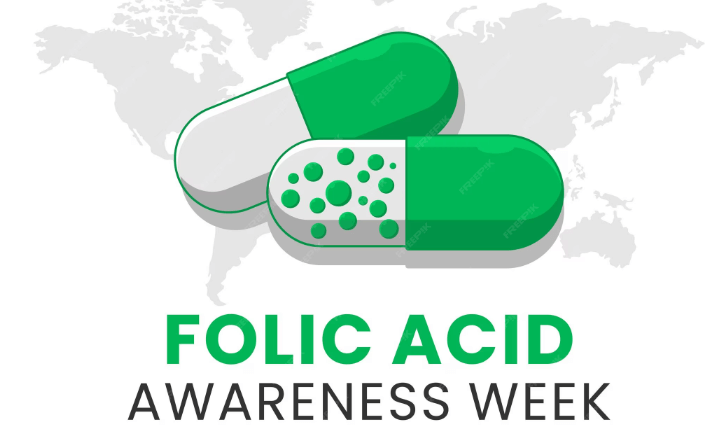Vitamin D and Multiple Sclerosis: Exploring the Connection

Table of Contents
- The Role of Vitamin D in Multiple Sclerosis
- Potential Benefits of Vitamin D Supplementation
- Studies Linking Vitamin D and MS Progression
- Recommended Vitamin D Levels for MS Patients
- Incorporating Vitamin D into MS Treatment Plans
The Role of Vitamin D in Multiple Sclerosis
Multiple Sclerosis (MS) is a chronic autoimmune disease affecting the central nervous system, leading to various neurological symptoms. Research has shown a strong link between vitamin D deficiency and the development and progression of MS. Vitamin D, often referred to as the “sunshine vitamin,” plays a crucial role in regulating the immune system and maintaining the health of the nervous system. Here, we delve into the importance of vitamin D in managing and potentially preventing multiple sclerosis.
1. Regulation of the Immune System:
- Vitamin D is essential for modulating immune function and reducing inflammation.
- Individuals with MS often have an overactive immune system, which causes it to attack the protective myelin sheath surrounding nerve fibers in the brain and spinal cord.
- Optimal levels of vitamin D can help regulate immune responses and potentially prevent the immune system from mistakenly attacking its own tissues.
2. Influence on Disease Progression:
- Several studies have demonstrated that low levels of vitamin D are associated with increased disease activity and a higher risk of developing MS.
- Conversely, adequate levels of vitamin D have been linked to a reduced risk of relapses and slower disease progression.
- Supplementation with vitamin D has shown positive effects on reducing the number and severity of MS relapses, as well as enhancing the response to disease-modifying treatments.
3. Sunlight and Vitamin D Synthesis:
- The primary source of vitamin D is sun exposure, as the skin naturally produces it when exposed to sunlight.
- People living in regions with limited sunlight, especially during winter months, are at a higher risk of vitamin D deficiency.
- Individuals with MS often have lower levels of vitamin D due to reduced sun exposure, mobility limitations, or the use of sun protection measures.
4. Supplementation and Vitamin D Levels:
- Supplementing with vitamin D is a common approach to ensure sufficient levels in individuals with MS.
- Consulting with a healthcare professional to determine the appropriate dosage is crucial since excessive vitamin D intake can lead to adverse effects.
- Regular monitoring of vitamin D levels allows adjustments in supplementation to maintain optimal levels.
In conclusion, vitamin D plays a significant role in MS management and prevention. Adequate levels of vitamin D may help regulate the immune system, influence disease progression, and reduce the risk of relapses. However, it’s important to consult with healthcare professionals and maintain proper monitoring when considering supplementation.
Potential Benefits of Vitamin D Supplementation
Vitamin D has long been recognized for its crucial role in maintaining bone health through its regulation of calcium and phosphorus levels in the body. However, emerging evidence suggests that vitamin D may also play a significant role in the prevention and management of multiple sclerosis (MS).
Here are some potential benefits of vitamin D supplementation in relation to MS:
- Reduced Risk of Developing MS: Studies have indicated a link between vitamin D deficiency and an increased risk of developing MS. Adequate vitamin D levels, either from sun exposure or supplementation, may help lower the risk of developing this autoimmune disease.
- Modulation of the Immune System: Vitamin D has the ability to modulate the immune system, reducing the risk of autoimmune responses. By promoting regulatory T-cell function, vitamin D may help dampen the attack on the myelin sheath seen in MS.
- Improved Disease Management: For individuals already diagnosed with MS, vitamin D supplementation may help improve the management of the disease. Research suggests that higher vitamin D levels are associated with reduced disease activity and fewer relapses in MS patients.
- Enhanced Cognitive Function: Cognitive impairment is common in individuals with MS. Preliminary studies suggest that vitamin D supplementation may help improve cognitive function and reduce the risk of cognitive decline in MS patients.
- Bone Health: Osteoporosis is a common concern in individuals with MS, partly due to reduced physical activity and limited sun exposure. Adequate vitamin D levels can promote calcium absorption and improve bone mineral density, reducing the risk of fractures.
While vitamin D supplementation shows promise in benefiting individuals with MS, it is important to note that further research is necessary to establish optimal dosage and long-term effects. It is advisable to consult with a healthcare professional before initiating any supplementation regimen. Additionally, a holistic approach to MS management, including regular exercise, a balanced diet, and prescribed medications, is crucial for comprehensive care.
Studies Linking Vitamin D and MS Progression
As researchers delve deeper into understanding Multiple Sclerosis (MS), there is increasing evidence to suggest a connection between the disease and vitamin D levels. Multiple Sclerosis is an autoimmune disorder that affects the central nervous system, leading to various neurological symptoms. Vitamin D, often referred to as the “sunshine vitamin,” plays a crucial role in immune function and has been of particular interest in relation to MS progression. Here are some studies that explore the link between vitamin D and Multiple Sclerosis:
- A study conducted by researchers at the Harvard School of Public Health found that individuals with higher levels of vitamin D had a significantly lower risk of developing MS. The study found that for every 50 nmol/L increase in vitamin D levels, there was a 39% decrease in MS risk. This highlights the potential role of vitamin D in preventing the onset of MS.
- Another study published in the Journal of the American Medical Association (JAMA) Neurology found that low levels of vitamin D were associated with more severe MS symptoms and increased disease progression. The study suggested that optimizing vitamin D levels could potentially slow down the progression of the disease and improve outcomes for MS patients.
- Recent research from the University of California, San Francisco (UCSF) discovered that higher vitamin D levels were associated with a reduced risk of brain lesions in individuals with MS. Brain lesions are a common characteristic of MS and are linked to disease progression. This study highlights the potential protective effects of vitamin D against the development of brain lesions in MS patients.
While these studies provide promising insights, it is important to note that further research is still needed to fully understand the relationship between vitamin D and MS progression. The exact mechanisms through which vitamin D affects MS are not yet fully understood, and additional randomized controlled trials are necessary to establish its therapeutic potential for MS patients.
Nevertheless, it is widely acknowledged that maintaining adequate vitamin D levels is important for overall health, and it may play a role in reducing the risk of MS and potentially slowing disease progression. It is recommended for individuals with MS to regularly monitor their vitamin D levels and consult with their healthcare providers to ensure they are meeting the optimal range to support their health and well-being.
Recommended Vitamin D Levels for MS Patients
Multiple Sclerosis (MS) is a chronic autoimmune disease that affects the central nervous system. It is known to cause various neurological symptoms and can have a significant impact on a person’s quality of life. There is increasing evidence suggesting a connection between Vitamin D levels and the development and progression of MS. Here, we explore the recommended Vitamin D levels for individuals with MS and the potential benefits it may offer.
Research has shown that people with MS often have lower levels of Vitamin D compared to the general population. Although the exact relationship between Vitamin D and MS is not fully understood, studies have indicated that maintaining optimal Vitamin D levels may have a positive impact on the disease.
The Vitamin D Council recommends a blood level of 40-80 ng/mL (nanograms per milliliter) as optimal for overall health. However, for individuals with MS, some experts recommend aiming for higher levels, closer to 60-100 ng/mL. It is important to note that these recommendations may vary depending on the individual and their specific circumstances, so consulting with a healthcare professional is crucial to determine the appropriate Vitamin D target.
Supplementing with Vitamin D is a common approach to achieving the recommended levels, especially for individuals with MS who may struggle to get sufficient sunlight exposure due to mobility limitations or living in regions with limited sunshine. Vitamin D supplements are available over-the-counter and in various forms, such as capsules, tablets, or liquid drops.
In addition to supplements, getting regular exposure to sunlight is another way to increase Vitamin D levels. Spending 15-30 minutes outdoors during peak sunlight hours—without sunscreen—can help the body naturally produce Vitamin D. However, it is essential to balance sunlight exposure with precautions to prevent sunburn or overexposure.
While more research is needed to fully understand the role of Vitamin D in MS, there is evidence to suggest that maintaining optimal Vitamin D levels may offer certain benefits. Studies have shown that higher Vitamin D levels are associated with a reduced risk of developing MS, as well as a lower risk of relapses and disability progression in those already diagnosed with the disease.
Having adequate levels of Vitamin D may also positively influence immune function and potentially modulate the inflammation that occurs in MS. However, it is important to note that Vitamin D is not a cure for MS, and further research is required to determine its full therapeutic potential.
- Regular monitoring of Vitamin D levels is crucial for individuals with MS.
- Consulting with a healthcare professional to determine the appropriate dosage and potential interactions with other medications is essential.
- Incorporating other healthy lifestyle practices, such as regular exercise and a well-balanced diet, alongside Vitamin D supplementation, is key.
- Individuals should aim to maintain a healthy Vitamin D level to support overall well-being.
By understanding the recommended Vitamin D levels for MS patients and taking appropriate measures to achieve and maintain them, individuals with MS may potentially optimize their overall health and potentially alleviate some MS-related symptoms. However, it is crucial to work closely with healthcare professionals to ensure personalized guidance and to make informed decisions regarding treatment strategies.
Incorporating Vitamin D into MS Treatment Plans
Multiple Sclerosis (MS) is a complex autoimmune disease affecting the central nervous system. While the exact cause remains unknown, various studies have explored the connection between Vitamin D levels and MS progression. Incorporating Vitamin D into treatment plans may provide potential benefits for individuals with MS.
1. Importance of Vitamin D:
- Vitamin D helps support the immune system and maintaining optimal neurological function.
- Low Vitamin D levels have been associated with an increased risk of developing MS.
- People with higher Vitamin D levels tend to experience reduced MS disease activity.
2. Impact on Disease Progression:
- Vitamin D supplementation has shown potential benefits in reducing relapse rates among individuals with MS.
- Higher Vitamin D levels may slow down disease progression and delay the onset of disability.
- Studies suggest that Vitamin D might have a protective effect on nerve cells and prevent inflammation within the central nervous system.
3. Optimizing Vitamin D Levels:
- Regular monitoring of Vitamin D levels and adjusting supplementation accordingly is crucial.
- Exposure to sunlight helps the body produce Vitamin D naturally, but caution must be taken to avoid excessive exposure or sunburns.
- Supplements can be prescribed by healthcare professionals to ensure adequate Vitamin D intake.
4. Collaborating with Healthcare Providers:
- Individuals with MS should consult their healthcare providers for personalized advice on Vitamin D supplementation.
- Healthcare professionals can assess Vitamin D levels through blood tests and recommend appropriate supplementation doses.
- Considering individual factors such as age, geographic location, and skin pigmentation can help determine the optimal dosage.
In conclusion, incorporating Vitamin D into MS treatment plans may be beneficial for individuals with MS due to the potential protective effects on the central nervous system and immune system. Collaborating with healthcare professionals to regularly monitor and optimize Vitamin D levels is crucial for achieving the best outcomes. However, further research is still needed to fully understand the intricate relationship between Vitamin D and MS.


























